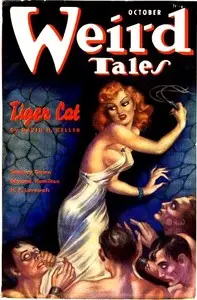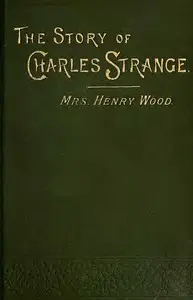"Tiger Cat" by David H. Keller is a horror short story published in the late 1930s, originally featured in the magazine "Weird Tales". The narrative unfolds a chilling tale of intrigue and terror, centered on a mysterious villa in Italy that seems to hold dark secrets tied to its previous owners. The protagonist, drawn by the appeal of the villa and its stunning view, soon discovers a gruesome reality lurking behind its charming facade. The story follows a man who, upon purchasing the villa, encounters the enigmatic Donna Marchesi and her disturbing past with the property. As he investigates further, he uncovers a hidden door in the cellar that leads to a nightmarish cavern where chained blind men, former owners of the villa, are imprisoned. The chilling tale escalates as the protagonist learns that these men were lured by the allure of the villa and the Donna, only to face a fate worse than death. Ultimately, the protagonist must confront the horrific truth behind the Donna's actions and the grim reality of the fate awaiting all who venture too close to her sinister allure. Through suspenseful storytelling and a vivid atmosphere, Keller explores themes of curiosity, deception, and the monstrous nature hidden beneath beauty. (This is an automatically generated summary.)

Tiger Cat
By David H. (David Henry) Keller
"Tiger Cat" by David H. Keller is a horror short story published in the late 1930s, originally featured in the magazine "Weird Tales". The narrative u...
David Henry Keller was an American writer who worked for pulp magazines in the mid-twentieth century, in the science fiction, fantasy, and horror genres. He was also a psychiatrist and physician to shell-shocked soldiers during World War I and World War II, and his experience treating mentally ill people is evident in some of his writing, which contains references to mental disorders. He initially wrote short stories as a hobby and published his first science fiction story in Amazing Stories in 1928. He continued to work as a psychiatrist while publishing over sixty short stories in science fiction and horror genres. Technically, his stories were not well-written, but focused on the emotional aspects of imaginative situations, which was unusual for stories at the time.








